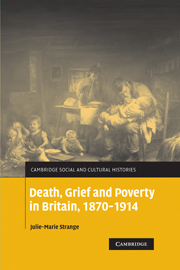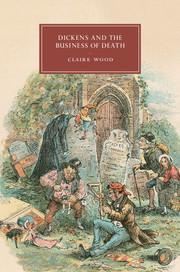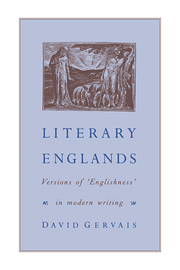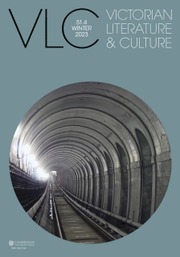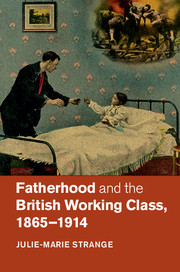Death, Grief and Poverty in Britain, 1870–1914
It has been assumed that the poor in Victorian and Edwardian Britain did not mourn their dead because of high mortality rates. Contesting this approach, Julie-Marie Strange studies the expression of grief among the working class, demonstrating that poverty increased--rather than deadened--it. She illustrates the mourning practices of the working classes through chapters addressing care of the corpse, the funeral, the cemetery, commemoration, and high infant mortality rates. The book draws upon fiction, journalism, and official reports as well as personal testimony.
- Original contribution to the growing field of history of death, emotion and memory
- Comprehensive book covers the experience of the working class attitude to death in Victorian and Edwardian Britain
- Covers a wide range of customs and practices surrounding death and funerals - from the care of the corpse to rituals of memory
Reviews & endorsements
"Julia Marie-Strange presents a wonderful sourcebook as well as a highly critical set of arguments about the death, dying, and loss experiences of the British working classes during the late Victorian period."
Allan Kellehear, University of Bath, Victorian Studies
Product details
July 2005Hardback
9780521838573
306 pages
236 × 163 × 26 mm
0.62kg
Available
Table of Contents
- Acknowledgements
- List of abbreviations
- 1. Introduction: revisiting the Victorian and Edwardian celebration of death
- 2. Life, sickness and death
- 3. Caring for the corpse
- 4. The funeral
- 5. Only a pauper whom nobody owns: reassessing the pauper burial
- 6. Remembering the dead: the cemetery as a landscape for grief
- 7. Loss, memory and the management of feeling
- 8. Grieving for dead children
- 9. Epilogue: death, grief and the Great War
- Bibliography
- Index.

